Your Europe, Your Say! 2022
The Truth about lies. Youth Challenging Disinformation.
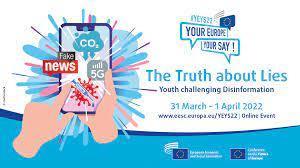
OUR EXPERIENCE: Sant Gabriel, EPAS School, Barcelona
- ICEBREAKER
What’s the typical dish in your country? Food was the chosen topic to begin the day while meeting students and teachers from all over Europe.
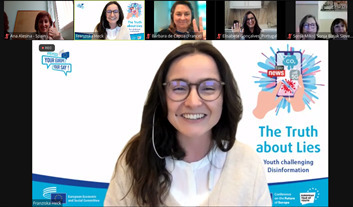
Opening Session
This session was moderated by Cillian Lohan, EESC Vice-President and there were different speeches regarding fake news and media literacy.
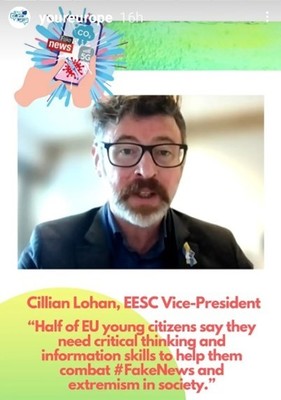
- Opening speech by Christa Schweng, EESC President
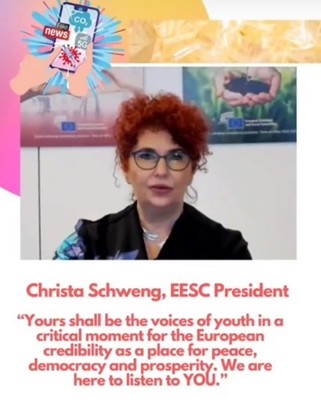
- Ruurd Oosterwoud, founder of DROG
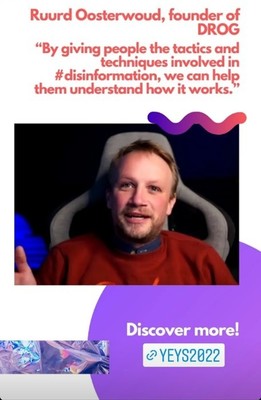
Juliane von Reppert-Bismarck, journalist and founder of Lie Detectors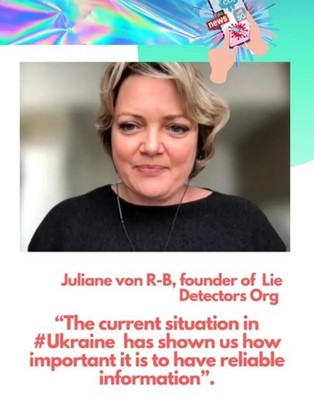
After the opening session, students and teachers split up in two different groups.
Day 1
- Students: Under Pressure Game
- Students played a game which was divided into levels. In the game you were the one who created the disinformation. You had an account where you uploaded posts and depending on how good you were fooling people you gained more followers or not. There were six levels and each level dealt with an aspect of disinformation. For example, there was a level of trolling and a level of polarisation. We finally talked about the results of the game and agreed that what makes people believe information that is not real is emotions and making an impact in people's heart.

- Teachers:
- House of European History: The session began asking teachers their own definition of fake.
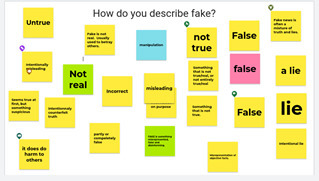
- Later on, Lauren Bragard, explained different interactive activities that the House offers to students. There are many learning possibilities and they also offer the possibility of online visits.
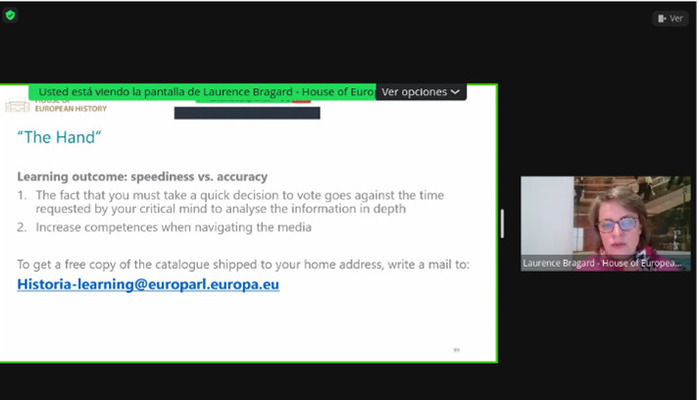
- Council of the European Union
- Brief introduction of the organisation and presentation of the civil education package.
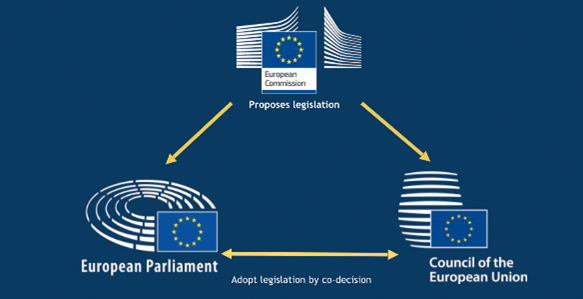
Day 2
- Students: Workshop in breakout groups
- Throughout the second day, all YEYS participants were organised into groups and subgroups with whom we worked together, thinking, and working as the fake news makers. As a result, we came up with a fake news campaign. By working in the place of the fakers, we learned what details make the difference between fake news and real news. After several hours of work, we presented to the rest of the classmates.
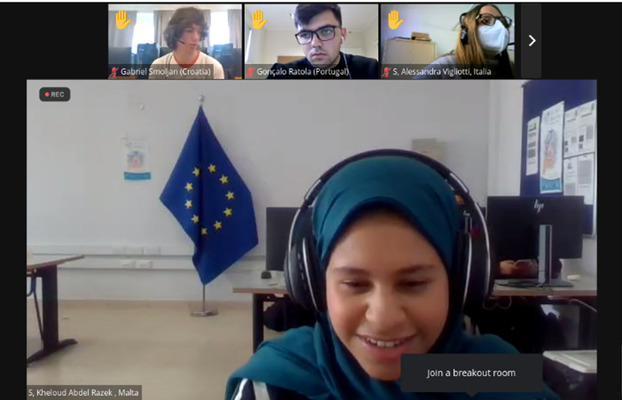
- Teachers
- Welcome by Biliana Sirakova, EU Youth Coordinator within the European Commission, who presented the Youth Goals.
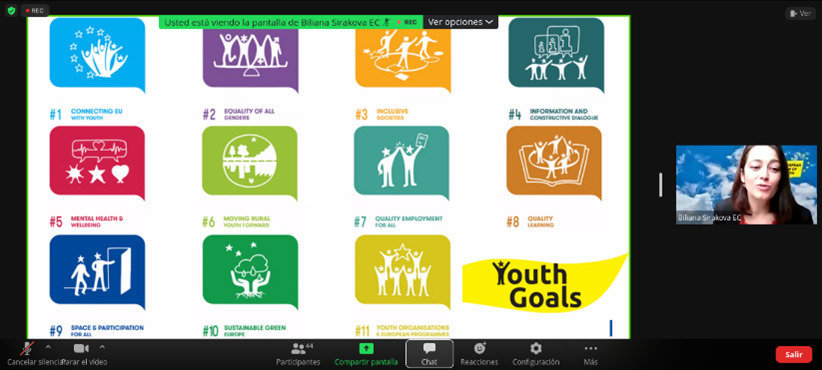
- European Commission:
- Presentation of the Learning Corner
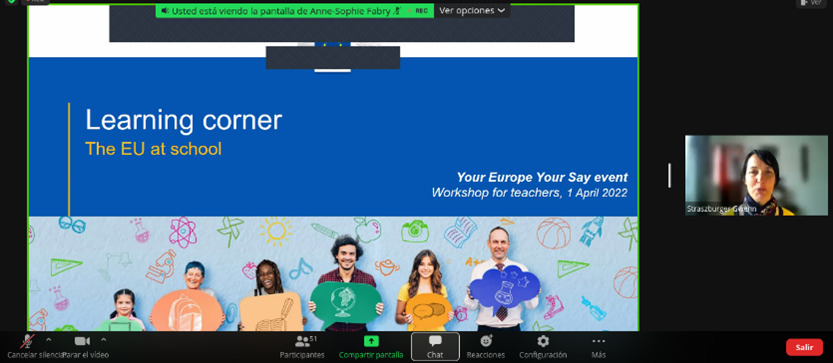
- Presentation Spot and fight disinformation

- European Committee of the Regions: presentation of the “Back to School” activities.
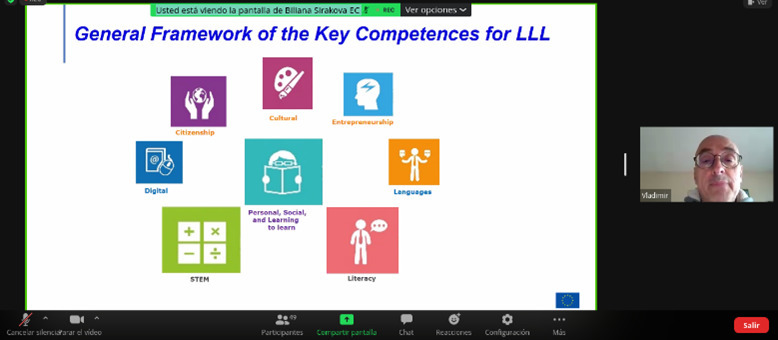
- European Parliament Ambassador School programme (EPAS)
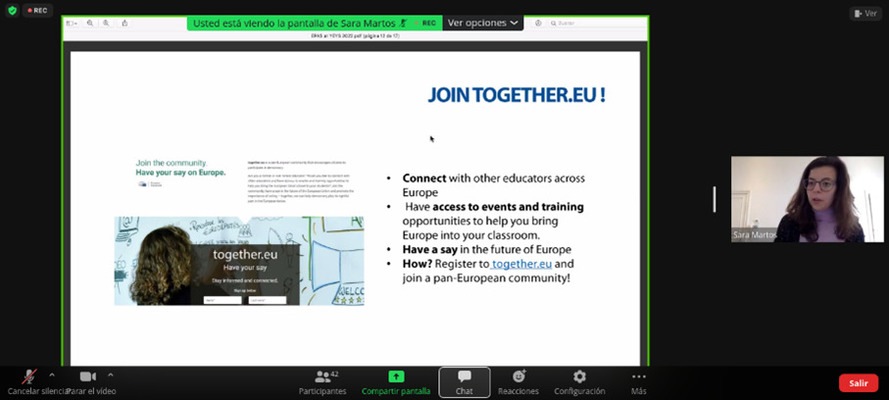
Closing session
Presentation of the proposals to the EU Commissioner by the students.
Keynote speaker: Ms Vera Jourova, European Commission Vice-President and European Commissioner for Values & Transparency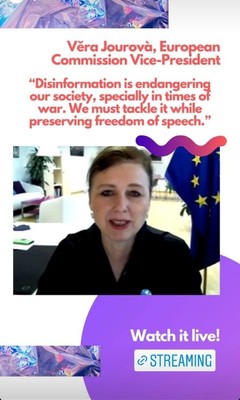
YEYS After-party
from the YEYS site
A big thank you to all of the schools, teachers and students for participating in our Your Europe, Your Say! 2022.
It was a great experience working with you over the two days of workshops, debates and plenaries online.
Your participation was what made the event a success; we appreciate your valuable contributions, and all the time, energy and input you gave to the event.
All the important conclusions you drew will soon feed into the final report on YEYS 2022!
Till then, you can consult our webpage for the short summary.
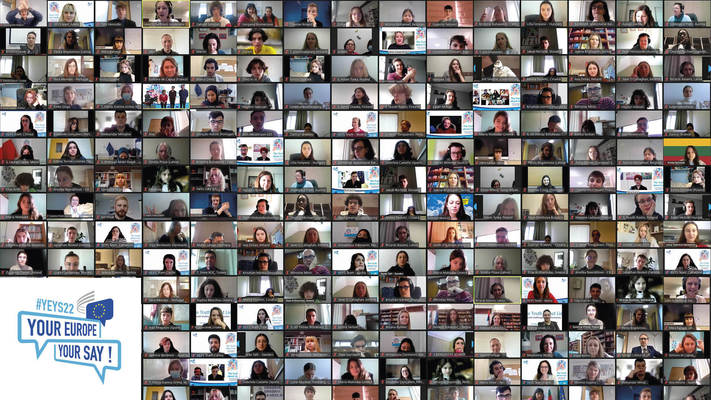
Thank you for the time and dedication you gave to preparing your school's delegation.
Your support and participation have been much appreciated throughout the entire event.
We hope that all of the 99 students and 44 teachers enjoyed this as much as we did!
Goodbye for now, but please stay tuned for the follow-up on our social media channels.
Students from the 27 EU countries, five candidate ones and a Brussels-based European school took part in the youth summit on disinformation and presented their recommendations live to European Commission Executive Vice-President Věra Jourová.
This year's Your Europe, Your Say! (YEYS) event, entitled "The Truth about Lies. Youth challenging Disinformation", brought together 99 teenage students and 44 teachers from various countries to reflect, engage in workshops and discuss how to tackle disinformation more effectively and how to better educate themselves, their teammates and others.
Over the course of two days, the students formed small groups for different workshops to deal with the theoretical background of and knowledge about disinformation and get themselves into the shoes of trolls and fake news spreaders. They developed disinformation campaigns, which they later countered as reporters using information ones. And they ended up better equipped to stand against fake news and tackle disinformation.
At the end of the workshops, the students were able to draw up recommendations and came up with a set of policies to be sent to high-level EU representatives. Eight of the 99 students were selected, each one representing a team, to brief Věra Jourová, European Commission Executive Vice-President on their conclusions and suggestions during the closing session, chaired by EESC Vice-President Cillian Lohan.
The students' recommendations were as follows:
- EU Member States should initiate national- and European-level public campaigns providing information about the dangers of disinformation and how easily fake news can polarise people and spread hate speech.
- Educational programmes should be developed. It is crucial that national authorities create and support educational courses on disinformation and invest in activities on how to spot and tackle fake news. Educational programmes on media literacy and learning tools should be included in schools' curricula. Disinformation should also be included in the Erasmus EU programme.
- Information platforms should be set up at national and/or European level, where information resources could be tracked and traced and fake news spreaders held accountable for what they publish online.
- Accessibility to reliable sources should be enhanced and a fact-checking mechanism inaugurated. Technology should be the vehicle to guarantee transparency and that could be achieved in a creative way by using modern online tools and apps like videos or games.
- By all means, say No to Censorship! Education is always the key and censorship should be avoided. National authorities and governments shouldn’t ban or restrict freedom of speech, and truth and credibility are the pillars that should be emphasised and preserved as the essential competences of democratic participatory societies.
- Systematic oversight of the content and origins of sources should be reinforced. Vulnerable target groups should be protected by limiting accessibility for fake news spreaders. That could be done via increased controls on the identity of publishers, and credentials and certifications should be required as a matter of course.
- New regulations and stricter legislation establishing possible penalties for disrespectful or fake content should be framed. The budget should be increased accordingly.
- Campaigns should be started up in cooperation with social media platforms and social media app companies to pop up warnings and information messages and introduce algorithms to detect fake news.